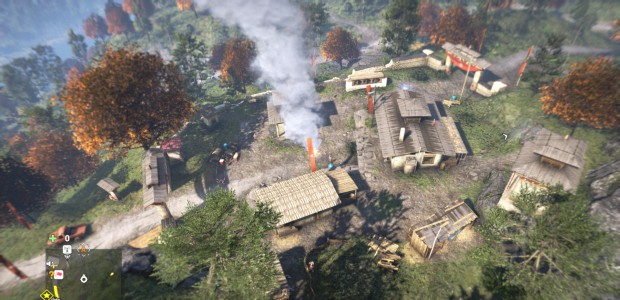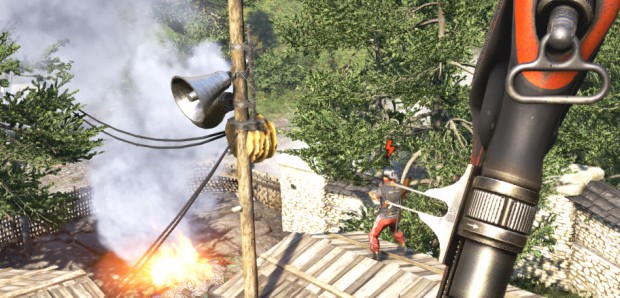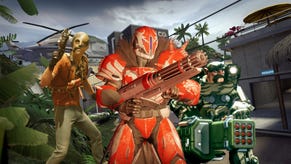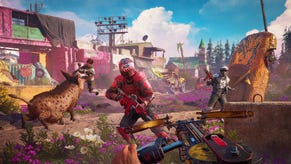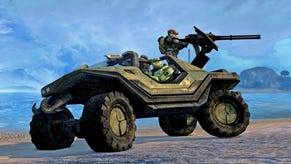Prog Rock And Prog Games: I Want Games That Do Less
Drum Solo
I like comparisons between videogames and music. Especially - for some reason - when it comes to Ubisoft games. But while I remain convinced that Assassin's Creed is Michael Bolton, I'm beginning to think Ubisoft themselves are prog rock.
I've spent the past two weeks playing Far Cry 4 and having a marvellous time, but it is an exhausting amount of game. This is because calling it a game, singular, downplays exactly how much it contains: it has camps and fortresses to Deus Ex your way through; it has radio towers to Mirror's Edge your way to the top of; it has hours and hours of a singleplayer campaign to miserably Call of Duty towards its grim end.
It has co-op. It has competitive multiplayer. It has a map editor. Crafting and hunting and side quests. Karma events and XP and skills.
Everything reviews previously complimented about Far Cry 3 has calcified and been repeated and expanded. As far as the quality of the series goes, this isn't a bad tactic. Games are iterative by their nature. Incremental improvements make sense, while starting from scratch each time would risk throwing out the baby with the bathwater. Making Far Cry 4 a slight progression of Far Cry 3 guarantees that those who liked the last game - and there were many - remain satisifed.
I am satisfied. I enjoy a Neil Peart drum solo as much as the next Rush fan, but sometimes I long for something taut and to the point.
In some regards, Far Cry 4 is admirable in the way it aims to maintain boundaries between its different activities. As far as I can tell, if you don't want to do a single outpost, you don't need to. If you want to be able to see the map but don't want to clamber to the top of each radio tower, you can hop in a gyrocopter and just fly to the highest level of each of them. Doing the latter allowed me to expose the entire southern part of the world in less than an hour.
But my feelings have less to do with relative quality or enjoyment of the expanse of Far Cry 4, and more to do with the psychological impact it has. Whatever activity you're doing in its world, you're aware of how much else is out there. While 'prog rock' is short for progressive, Ubisoft might be in the industry of making 'progress games'. There's even a button on the pause menu called Progress, ready at any moment to remind you that however much you think you might have completed, 70% of the game remains waiting, untouched. Only want to play the parts of the game you enjoy? Well, you could. But don't you want to make progress?
I think the way the game has been received has as much to do with that psychological weight as it has with the repetition of a now familiar formula. People are made weary by the scale of it, both for the demands it seems to make of you and for the way it makes the game impersonal. Far Cry 4 is telling you everything you want to hear, with very little sense that it cares about anything but overwhelming you.
I'm certain then that people would be raving about Far Cry 4 more if Ubisoft had snipped out everything but the forts I love so much. A three-minute pop song of a game: focused, fun, a breath of fresh air. A statement of intent with clear values. It would be light and fun and frothy where Far Cry 4 is, in its dim way, demanding.
It's tempting at this point in my argument to set up an easy dichotomy between big budget, Phil Collins-shaped Ubisoft and the rough-and-ready punk indie games scene. I've never quite bought that. Indie games are focused as much by necessity as by aesthetic choice.
Instead, I think there's hints that the mainstream machine knows they need a little more lightness - even if, mainly, to retain staff and to take risks without betting the farm. Ubisoft's UbiArt framework seems designed specifically to allow the creative people who work at their studios to make something small and personal, whether that be another beautiful Rayman platformer or a strange, touching game about World War One or an RPG by way of a children's storybook.
Blizzard must also surely have noticed that the warm welcome Hearthstone received had at least something to do with its focus and simplicity. It's already easy to see new CCGs as cynical, but for a company who had previously been concerned with colossus' like World of Warcraft or multiple StarCraft games, Hearthstone initially seemed quaint. Compare it to their newly announced Overwatch, which for all the praise heaped upon it by those who played it at the recent Blizzcon, was met with a certain kind of weariness. 'Here is another multimedia behemoth.'
I see the value in enormous, genre-sprawling games. For those who don't have much extra income to spend on games, something that might last hundreds of hours offers literal value for money.
But I hope that more of the big publishers take the biggest risk they can; not to do more or go further, but to do less and be smaller.
This article was funded by the RPS Supporter program.


